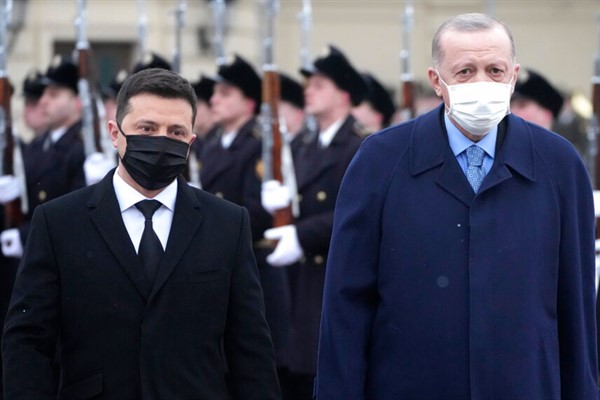As the threat of war between Russia and Ukraine looms ever larger, Turkey finds itself between a rock and a hard place. It does not want to antagonize Russia, with which it shares strategically vital interests, but it also needs to show its support for Ukraine and its NATO allies in the face of the greatest threat to European security in the post-Cold War era. This has forced Turkey to walk a finely calibrated diplomatic tightrope over the past month.
During his visit to Kyiv on Feb. 3, Turkish President Recep Tayiip Erdogan proclaimed his support for Ukrainian sovereignty, reiterated his opposition to the annexation of Crimea and signed a landmark free trade agreement to signal Turkey’s commitment to the long-term relationship with Ukraine. This was balanced, however, with an offer to defuse the situation by convening a trilateral summit with Russian President Vladimir Putin and Ukrainian President Volodymyr Zelensky in Ankara or Istanbul. Erdogan continues to press this proposal with Putin.
The urgency and importance of Erdogan’s diplomatic overtures are understandable. Ankara has sunk its economic teeth into Ukraine and could end up being one of the main economic losers if Russia invades. In 2021, Turkey became the largest foreign investor in Ukraine, with investments in excess of $4 billion. There are currently over 700 Turkish companies operating on the ground. In the past five years, Turkish exports to Ukraine have nearly doubled to $2.6 billion, while imports have risen sharply from $2.8 billion to $4.4 billion.

